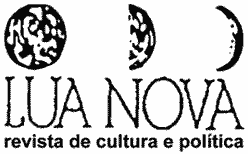| Erradicação da fome, luta contra a pobreza e desigualdades sociais e fortalecimento da ajuda humanitária |
1. Garantir o direito humano a alimentos adequados e saudáveis, reduzindo a fome e combatendo a desnutrição. |
| 2. Garantir a segurança alimentar e nutricional para os Estados do Mercosul como parte de seus direitos soberanos e metas para o pleno desenvolvimento. |
| 3. Fortalecer a assistência humanitária para promover respostas rápidas e eficazes em emergências e estimular a troca de reservas públicas de alimentos em situações específicas de necessidade entre os Estados do Mercosul. |
| 4. Combater a pobreza e as desigualdades sociais em nível nacional e regional, promovendo a redistribuição dos ganhos e levando em conta, além disso, a perspectiva de género. |
| Direitos humanos, participação social, movimento de pessoas e diversidade |
1. Assegurar o pleno exercício dos direitos civis, políticos, económicos, sociais e culturais, individuais e coletivos, a toda a população dos Estados do Mercosul, sem qualquer discriminação em relação a sexo, etnias, orientação sexual, religião, opiniões políticas, origem nacional ou social, condições económicas, nascimento ou qualquer outra razão de qualquer outra natureza ou condição. |
| 2. Garantir o respeito aos direitos humanos e fortalecer a cooperação regional em direitos humanos entre os estados do Mercosul. |
| 3. Incentivar a participação dos atores sociais e atores subnacionais (prefeituras, administradores, governos estaduais e departamentais) no processo de formulação e gestão de políticas públicas. |
| 4. Facilitar a circulação de pessoas. |
| Saúde |
1. Universalizar o acesso a serviços públicos de saúde abrangentes, de qualidade e humanizados como um direito fundamental dos Estados do Mercosul. |
| 2. Promover a coordenação entre os Estados sobre políticas abrangentes de promoção da saúde pública. |
| 3. Aumentar a autonomia dos Estados do Mercosul em pesquisa e desenvolvimento em saúde. |
| Educação, cultura |
1. Aprofundar a integração do setor educacional por meio da coordenação das políticas educacionais e da implementação dos Planos Setoriais de Educação do Mercosul, que promovam uma identidade regional e uma cultura de paz e respeito à democracia, aos direitos humanos e ao meio ambiente. |
| 2. Fortalecer os vínculos entre integração e processo de integração entre Estados por meio de estudos e diagnósticos sobre esses temas. |
| 3. Incentivar a integração educacional entre os Estados do Mercosul. |
| 4. Promover a conscientização de uma identidade cultural regional, valorizando e disseminando a diversidade cultural dos estados do Mercosul. |
| 5. Promover a inclusão social por meio de políticas públicas que energizem a indústria cultural e promovam o acesso dos cidadãos ao patrimônio cultural. |
| Integração produtiva, agricultura familiar, economia solidária e cooperativas |
1. Promover a integração produtiva, principalmente nas regiões fronteiriças, com o objetivo de beneficiar regiões menos desenvolvidas e segmentos vulneráveis da população. |
| 2. Promover o desenvolvimento de micro, pequenas e médias empresas e incentivar seu desenvolvimento por meio de cadeias produtivas. |
| 3. Estimular a criação e o desenvolvimento de cooperativas, empresas de agricultura familiar e economia solidária, destacando sua complementaridade regional. |

 Thumbnail
Thumbnail
 Fonte:
Fonte: